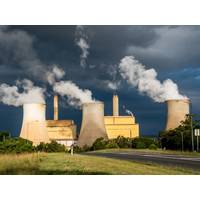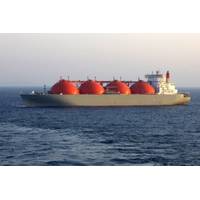Australian States Delay Approving New Energy Policy

Australia's states on Friday held off approving a plan to end more than a decade of climate and energy wars and spur investment in new power supply, disappointing industry seeking certainty on energy policy.Prime Minister Malcolm Turnbull is pushing a National Energy Guarantee (NEG) in a bid to bring down electricity prices, which have more than doubled over the past decade, and ensure supplies following a string of blackouts in 2016 and 2017.Energy Minister Josh Fr
To Frack or Not to Frack? Australia's NatGas Dilemma
The decision by the government of Australia's Northern Territory government to allow the resumption of fracking for natural gas will do little to immediately solve the country's energy woes, but will likely sharpen political battle lines. The territory's government said on April 17 that it has lifted a near two-year moratorium on hydraulic fracturing, known as fracking, accepting the recommendations of its own commission of inquiry into the practice.
Australia Risks Missing Next LNG Wave: Russell
Should the arrival of the last major piece of kit in Australia's $180 billion liquefied natural gas (LNG) spree be a cause for celebration or for a wake? It may seem that the arrival of the Ichthys Venturer floating production, storage and offloading facility would be worthy of breaking out the champagne. The vessel, which will be moored some 220 kilometres (132 miles) off the northwestern coast as part of Inpex's Ichthys project…
Victoria Mulls Floating LNG Plan
Australia's Victoria state is working with AGL Energy to study building a liquefied natural gas (LNG) import terminal to beef up local gas supply, even as the country is set to become the world's largest LNG exporter. Victorian Premier Daniel Andrews is under pressure to bolster regional gas supplies after barring all onshore gas drilling, as the southeast Australian state looks to save manufacturing jobs threatened by soaring energy prices.
Australia Gas Export Restrictions Counterproductive
When governments adopt new policies the benchmark for success should be that the change works, is efficient and fair to all parties and does not create unintended consequences. The decision by the Australian government to restrict exports of natural gas if the domestic market is constrained meets none of these criteria, although it may just persuade an increasingly angry public that the authorities are doing something.
Australia Plans to Limit LNG Exports

Australia's conservative government unveiled a radical plan on Thursday to restrict exports of liquefied natural gas (LNG) at times when domestic shortages push up local prices, aiming to ease soaring energy costs for local manufacturers. The plan would allow Australia's resources minister to impose controls on LNG exports on advice from the market operator and regulator, as the government seeks to cap domestic gas prices, which have become a political hot potato.
Australia in Talks With Gas Majors to Avert Local Shortage
Australian PM in crisis talks with gas majors; Australia faces gas shortage despite exports soaring. Australia's top gas producers, led by ExxonMobil Corp and Royal Dutch Shell, agreed to boost supply to the country's domestic market to help avert an energy shortage following crisis talks with Prime Minister Malcolm Turnbull. Australia is on track to become the world's largest exporter of liquified natural gas (LNG)…
Thousands Without Power as Storms hit Australian state
Wind gusts and storms lashed the Australian state of Victoria on Sunday, downing trees and causing power-outages for thousands of people. Roughly 13,000 homes were without power across the country's second-most populous state and Melbourne's International Airport closed one of two runways, causing significant delays. The outages come a week after severe storms and lighting strikes left all of South Australia state without power for nearly 24 hours…
Protests Greet Australia's first Returning Nuclear Waste
Anti-nuclear protesters in rubber dinghies and water police shadowed a vessel carrying a shipment of reprocessed nuclear waste as it docked on Saturday at an Australian port after a two-month voyage from France. Environment group Greenpeace questioned the safety of transporting the 25 tonnes of waste, which originally came from an Australian reactor producing radioactive isotopes for industrial and medical uses and was sent overseas for treatment.